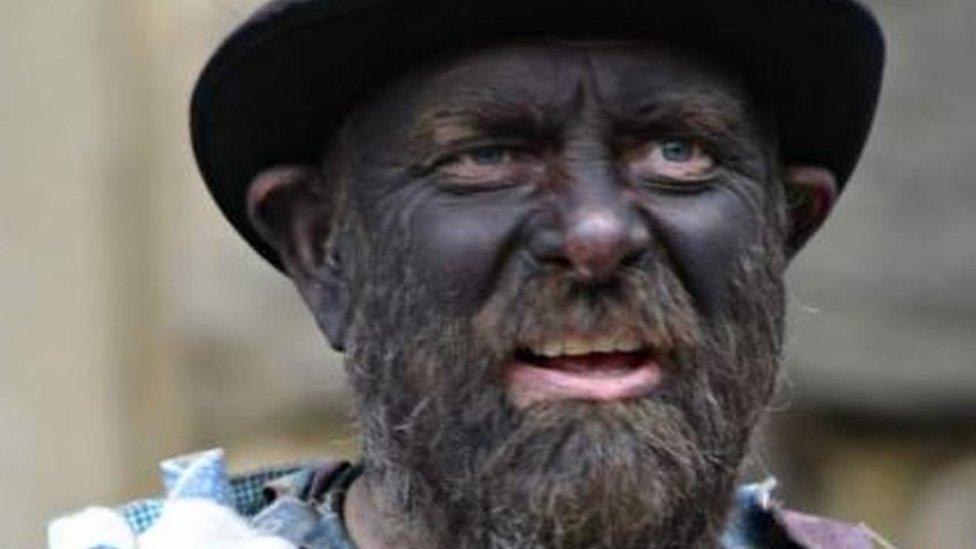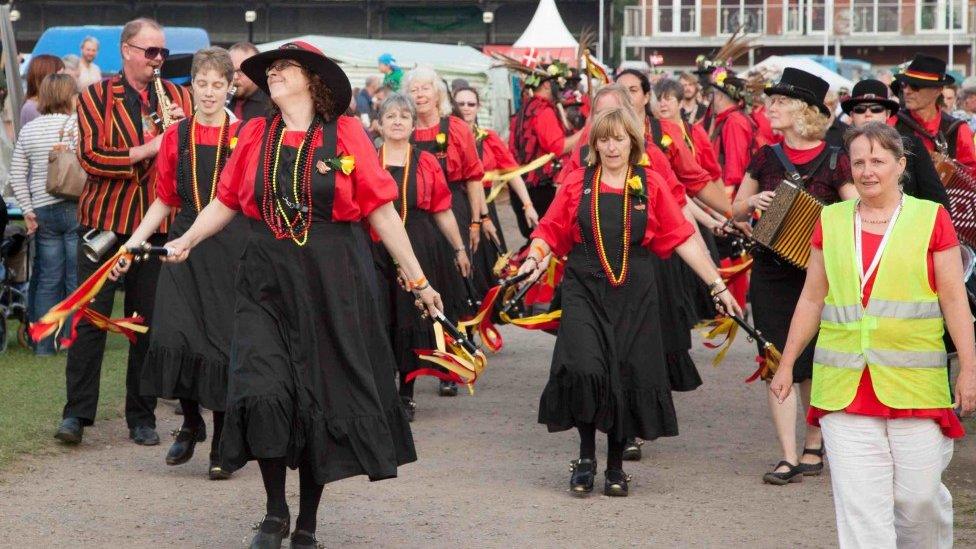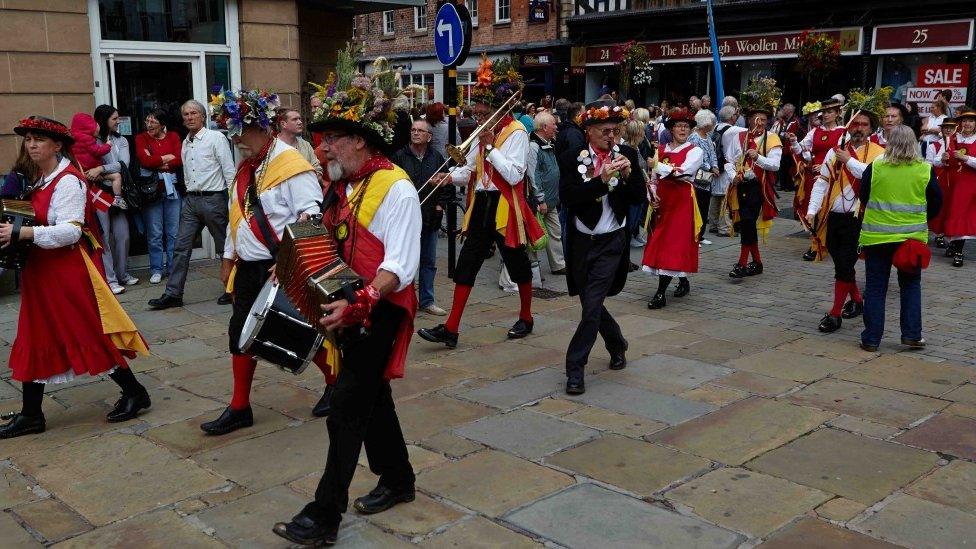Shrewsbury Folk Festival bans 'blackface' Morris dancers
- Published

A member of the public contacted an equality group over concerns that blacked-up Morris dancers could cause racial offence
A folk festival has banned Morris dancers in black face make-up after it received complaints they could cause racial offence.
Shrewsbury Folk Festival bosses said dancers wearing full black face paint would not be booked from next year.
But the organisers said there were "no racial connotations, external" and they had "never wanted to upset people."
Fairness, Respect, Equality Shropshire (Fresh) said the ban showed sensitivity "to a changed social climate".
The weekend's event will be the last where Morris dancers will be allowed to showcase the 500-year-old custom of covering their faces with black make-up.
But the festival's organisers said it was "a national issue that should not be focused solely on the Shrewsbury Folk Festival".

Reactions from BBC Radio Shropshire listeners
Adrian Pitt: "I am disappointed that the organisers are not prepared to tolerate my traditional disguise, which has nothing to do with mimicry of any racial group and doesn't even look like any particular racial group, the evidence of which goes back centuries."
Liz Weaver: "I don't think some of you are quite understanding the offensiveness of the blacked-up face. This singing and minstrel costume is depicting Uncle Tom. A black man who used to perform for white people. The implication that Uncle Tom was complicit in his own slavery is where the offence comes in."
Jon Roads: "It's terrible that PC nonsense is being used to repress our traditional customs in this way. These ancient traditions are at risk of dying out completely. Just disgusting."
Richard Day: "Just because we have done something for a long time does not necessarily mean we should continue it unless you want to bring back the burning of witches maybe?"
Joseph Bond: "Has everyone missed the irony that all those complaining and bemoaning this progressive decision are white? It's also interesting that most of you mourning your traditions are too stubborn to breathe life into them in order to help them survive."
Have your say on the BBC Radio Shropshire Facebook, external page.


Organisers say they have received complaints both for "blacking up" Morris dancers, and for not
Jonathan Hyams from Fresh said the group had contacted festival organisers after a complaint from a member of the public.
The groups had met to discuss the issue and Fresh suggested the dancers use another colour of face paint or patterned make-up instead.

Morris dancers in Shrewsbury's square
Sandra Surtees, from the festival, said: "We are somewhat caught in the middle - we've been contacted by an organisation that's asked us not to book them, and we've been contacted by a group upset because we've not booked them.
"But we recognise that times have changed. We're happy to change our policy."
From 2017, "you will still see black make-up on Morris dancers but not [on the] the full face," she said.
She said two of the three Morris groups booked for this year's festival had "already moved away from wearing full face black make up of their own volition".
One interpretation of the tradition is that it started when begging was illegal, when people would conceal their faces to avoid being recognised, she said.
The most notorious version of the 'Blackface' was used in the United States from minstrel shows of the early 19th century, in which actors caricatured and mocked black slaves.
- Published19 August 2016
